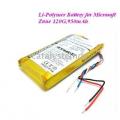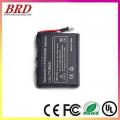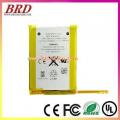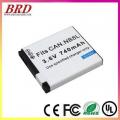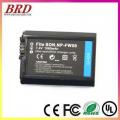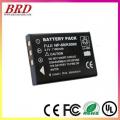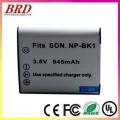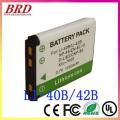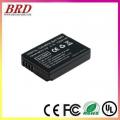- Contact Person : Ms. Sally Zhou
- Company Name : Shenzhen Broad Science & Technology CO.,Ltd
- Tel : 86-137-14393114
- Fax : 86-0755-82566196
- Address : Guangdong,Shenzhen,Zhenzhong Road
- Country/Region : China
- Zip : 518000
Rechargeable for iPod Microsoft Zune 120G Battery,950mAh
Li-Polymer Battery for iPod Microsoft Zune 120G ,950mAh
Safety requirements
Li-ion batteries are not as durable as nickel metal hydride or nickel-cadmium designs,[citation needed] and can be dangerous
if mistreated. They may suffer thermal runaway and cell rupture if overheated or overcharged. In extreme cases, these effects
may be described as "explosive." Furthermore, overdischarge can irreversibly damage battery. To reduce these risks, batteries
generally contain a small circuit that shuts down when the battery moves outside the safe range of 3–4.2 V.
When stored for long periods, however, the small current drawn by the protection circuitry itself may drain the battery.
Normal chargers are then ineffective. More sophisticated battery analyzers can recharge deeply discharged cells by slow-
charging them to first reactivate the safety circuit and allow the battery to accept charge. Overdischarge can short-circuit
the cell, in which case recharging can be unsafe.
Other safety features are required:
shut-down separator (for overtemperature)
tear-away tab (for internal pressure)
vent (pressure relief)
thermal interrupt (overcurrent/overcharging)
These devices occupy useful space inside the cells, reduce their reliability[citation needed]; ,and irreversibly disable the
cell when activated. They are required because the anode produces heat during use, while the cathode may produce oxygen.
These devices and improved electrode designs reduce/eliminate the risk of fire or explosion.
These safety features increase costs compared to nickel metal hydride batteries, which require only a hydrogen/oxygen
recombination device (preventing damage due to mild overcharging) and a back-up pressure valve.
Many types of lithium-ion cell cannot be charged safely below 0°C.

